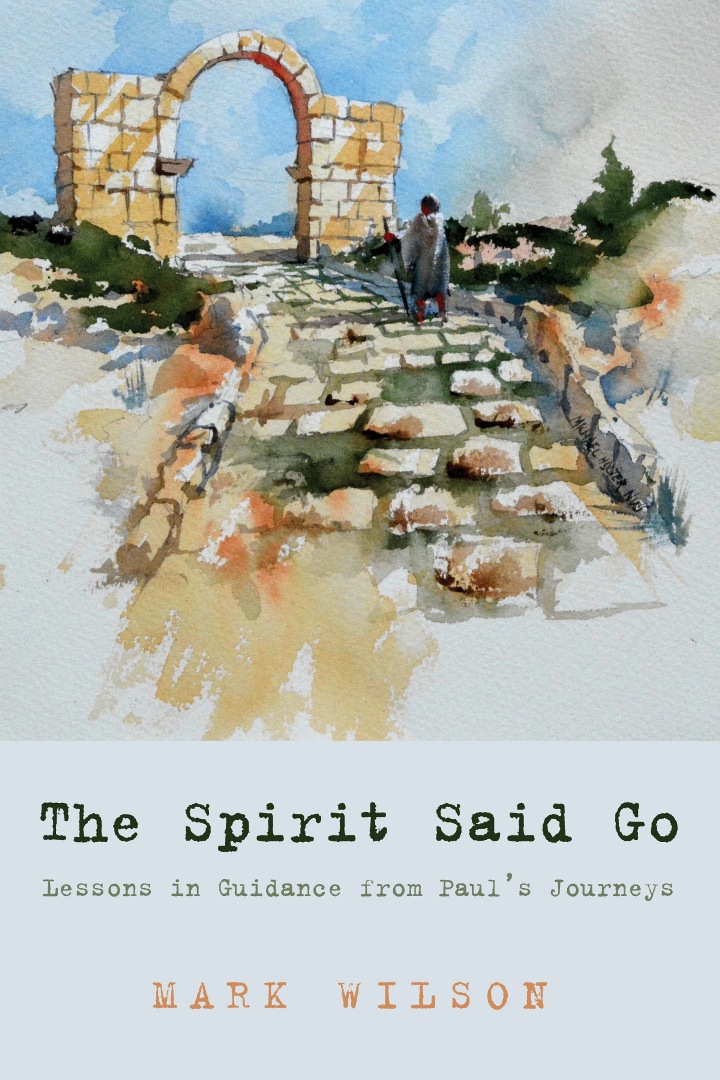Mark Wilson: The Spirit Said Go
 Mark Wilson, The Spirit Said Go: Lessons in Guidance from Paul’s Journeys (Eugene, OR: Wipf & Stock, 2017), 164 pages, ISBN 978-1532630132.
Mark Wilson, The Spirit Said Go: Lessons in Guidance from Paul’s Journeys (Eugene, OR: Wipf & Stock, 2017), 164 pages, ISBN 978-1532630132.
Mark Wilson is both a scholar and an author. He founded the Asia Minor Research Center in Antalya, Turkey and serves as its director. He is also the author of Biblical Turkey and Victory through the Lamb. As the subtitle of this current volume indicates this a book about divine guidance. However, this study is not merely historical. While the author uses biblical/historical examples from the life of the apostle Paul as the basis for the study, he does not leave the subject of guidance in the distant past. Throughout the book he cites examples of divine guidance in his own life and in the lives of people that he knows.
The book consists of an introduction, seven sections, which contain a total of twenty lessons, and five appendixes. The lessons focus on events in Paul’s life that are recorded in the book of Acts. Each lesson closes with reflection questions to help the reader remember and interact with the material in the lesson. Chapter eight is a summary of the various ways and means that God uses to guide people. The appendixes cover a variety of subjects. One deals with some additional examples of guidance in the book of Acts, two are testimonial in nature, recounting some of the author’s experiences, and the last two deal with the gift of prophecy.
In the course of the book Wilson gives attention to a variety of ways in which the Lord guides his people. In chapter eight he summarizes them by placing them in three major categories: supernatural, volitional, and providential. Those that he classifies as supernatural include dreams, visions, angels, and prophecy. Those in the volitional category include church leaders, human networks, and fellow believers. Guidance that he considers providential includes such things as conflict, open doors, and changed circumstances. God works though many different means to lead and guide his people. And, as Paul’s experience demonstrates, the Lord uses different forms of guidance at different times in a person’s life in order to accomplish his purposes.
The Lord uses different forms of guidance at different times in a person’s life in order to accomplish his purposes.
Category: Biblical Studies, Summer 2018


